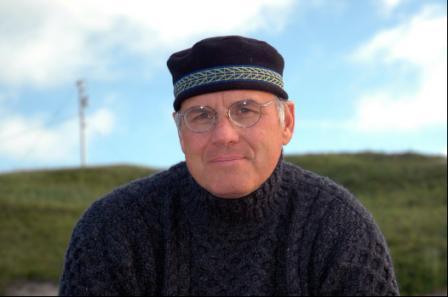Is GPS Severing Our Connection to the Natural World?
 As our culture moves away from more traditional map reading (and map making) skills, and we grow increasingly dependent on digital-based networks of navigation – in contrast to finding our way by information obtained through close observation and actual, studied experience – we may be losing our capacity for profound wonderment when encountering real landscapes, new or familiar, and are in danger of reducing discovery to expedient clicks on smartphones, laptops, and navigation devices. "I can't relate to a world where I'm content to just be told where I am,” says Olmsted. “There is a connection between valuing places and preserving them. We need to relate to places in a variety of ways and maps can help, but increasingly the destination has supplanted the journey.” If this phenomenon indeed is true, should we be concerned?
As our culture moves away from more traditional map reading (and map making) skills, and we grow increasingly dependent on digital-based networks of navigation – in contrast to finding our way by information obtained through close observation and actual, studied experience – we may be losing our capacity for profound wonderment when encountering real landscapes, new or familiar, and are in danger of reducing discovery to expedient clicks on smartphones, laptops, and navigation devices. "I can't relate to a world where I'm content to just be told where I am,” says Olmsted. “There is a connection between valuing places and preserving them. We need to relate to places in a variety of ways and maps can help, but increasingly the destination has supplanted the journey.” If this phenomenon indeed is true, should we be concerned?
For over two decades Olmsted has taught nature writing and environmental literature as well as freshman composition and research & analysis courses at Landmark College in Putney, Vermont. In the dimmer past, he wore the hats of a Peace Corps volunteer in Afghanistan, a community development worker in coastal Newfoundland for the Quebec-Labrador Foundation, a high school history teacher in Mallorca, Spain, and a foreign student program coordinator at Northeastern University. For many summers, he led trail crews in the U.S. National Forests, and worked as a skills instructor for the Student Conservation Association. A great fan of unstructured play (for both children and grown-ups), eclectic reading, canoe camping in the style of the early 20th century, and general goofing-off, Olmsted lives with his wife and daughter in Westmoreland, NH.
This event, which is part of the Spring Academic Speaker Series, is open to the public, free, and presented in the Belle O’Brien Auditorium of the East Academic Building – a handicapped-accessible facility.